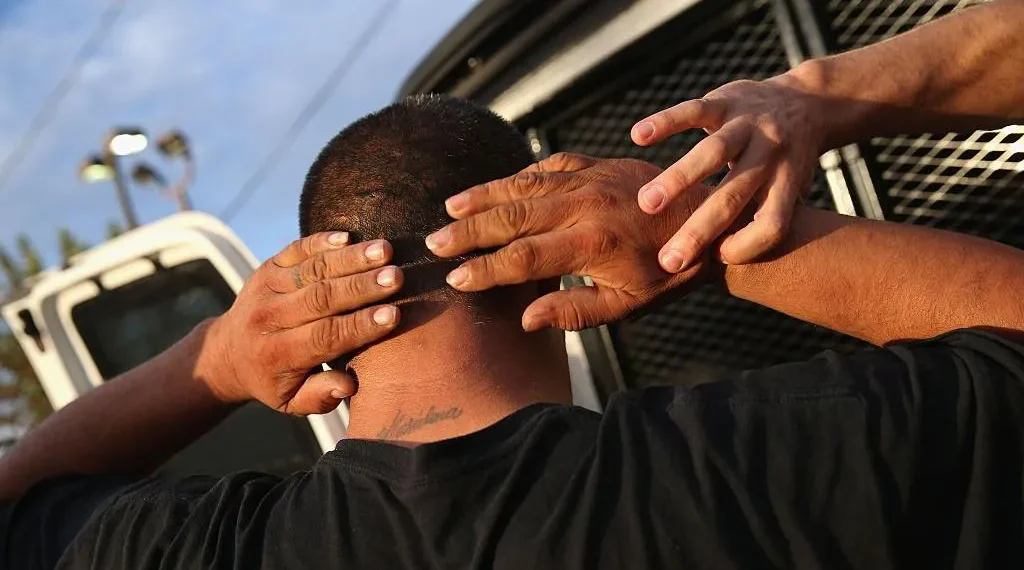Undocumented Migrants React to Trump’s Promised Mass Deportations: Hope, Fear, and Uncertainty
Gabriela, a Bolivian immigrant, has lived in the United States for over two decades. Her journey began when she entered the country hidden beneath corn stalks in a smuggler’s car. Now a housekeeper in Maryland, Gabriela is among the estimated 13 million undocumented migrants in the U.S. This diverse group includes individuals who entered the country illegally, overstayed their visas, or hold temporary protected status.
As Donald Trump’s administration prepares for a potential return to office, his promise of mass deportations is sparking intense debate among undocumented communities.
Divided Reactions: Fear vs. Optimism
Gabriela, for one, remains unfazed. “I’m not scared at all,” she said. “That’s for criminals to worry about. I pay taxes and work. How would they even know about me?”
Others, like Carlos, an undocumented Mexican living in New York City, share her cautious optimism. “Many Latinos voted for Trump because they believe he can improve the economy,” he said. “That would be good for us too.” Carlos, whose son is a U.S. citizen, hopes economic growth under Trump would create more opportunities for everyone, including undocumented workers.
But not all are as hopeful. Eric Bautista, a California high school teacher and recipient of DACA (Deferred Action for Childhood Arrivals) protection, is deeply concerned. “It feels like we’re at a turning point,” he said. Bautista, brought to the U.S. at age seven, has only faint memories of his birthplace, Mexico. For him, Trump’s rhetoric evokes historical waves of nativism he teaches his students about.
RELATED POSTS
What Does Trump’s Promise Mean?
During his campaign, Trump vowed to launch sweeping immigration enforcement efforts, claiming he would deport millions of undocumented individuals. His appointed “border tsar,” Tom Homan, has stated that the focus will initially be on individuals with criminal records or deemed threats to public safety. However, Homan also suggested that workplace raids, halted under the Biden administration, might resume.
Homan recently dismissed fears of large-scale sweeps or detention camps but acknowledged that “collateral arrests” are likely. This term refers to individuals detained during raids targeting others. For example, if officials raid a household looking for one person, other undocumented residents might also face detention and deportation.
Mixed-Status Families Fear Separation
For undocumented families, particularly those with mixed legal statuses, the looming threat of deportation is deeply unsettling. Brenda, a DACA recipient in Texas, fears for her husband and mother, who lack legal protections. Her two children, both U.S. citizens, only heighten her anxieties.
“The thought of being separated from my family is terrifying,” Brenda said. “It’s important for us to see our sons grow up together.”
Broader Implications
Experts warn that mass deportations could have far-reaching economic and social consequences. Undocumented migrants are integral to industries like agriculture, construction, and warehousing. Workplace raids could lead to “indiscriminate detentions,” according to Aaron Reichlin-Melnick of the American Immigration Council.
He added, “Removing Biden’s enforcement priorities means anyone without legal status could become an easy target.”
Meanwhile, private prison companies like GEO Group and CoreCivic, which build detention facilities, have already seen stock prices soar by nearly 90% since Trump’s election win.
A Divided Future
While some undocumented immigrants hope for economic stability under Trump, others fear increased enforcement could tear families apart. With uncertainty looming, many find themselves caught between cautious hope and deep apprehension.
As the debate continues, the question remains: Can a balance be struck between enforcing immigration laws and safeguarding the lives of millions who have built their lives in the U.S.?
This article was rewritten by JournosNews.com based on verified reporting from trusted sources. The content has been independently reviewed, fact-checked, and edited for accuracy, neutrality, tone, and global readability in accordance with Google News and AdSense standards.
All opinions, quotes, or statements from contributors, experts, or sourced organizations do not necessarily reflect the views of JournosNews.com. JournosNews.com maintains full editorial independence from any external funders, sponsors, or organizations.
Stay informed with JournosNews.com — your trusted source for verified global reporting and in-depth analysis. Follow us on Google News, BlueSky, and X for real-time updates.














